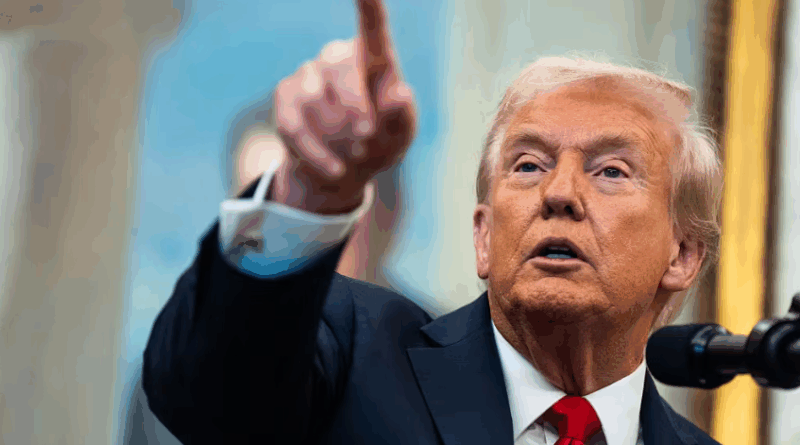Trump Administration Eyes More Sanctions on Russia, Pushes Europe to Step Up
The Trump administration has prepared a new round of sanctions targeting key sectors of Russia’s economy as pressure builds on Moscow to end its prolonged war in Ukraine, according to a U.S. official and another source familiar with the discussions.
Officials in Washington have also told European allies they support the use of frozen Russian assets to help fund U.S.-made weapons for Ukraine. Internally, there have been early discussions about leveraging Russian assets held within the U.S. for the same purpose, though no decision has been made.
While it remains unclear whether these actions will be implemented immediately, the White House has made clear it is ready to escalate pressure if Russian President Vladimir Putin fails to respond to recent sanctions. Last Wednesday, President Trump imposed sanctions on Russian oil giants Lukoil and Rosneft, which led to a spike in oil prices and forced Chinese and Indian buyers to look elsewhere.
The administration appears to be waiting to assess Russia’s reaction before launching additional penalties. One U.S. official said he’d prefer European partners take the next step, either through new sanctions or tariffs. The goal, according to sources, is to maintain a unified and escalating response.
Future sanctions under consideration include restrictions on Russia’s banking industry and the infrastructure used to export oil. Ukrainian officials have proposed additional measures, including cutting off all Russian banks from the U.S. dollar system. It’s unclear how seriously these proposals are being weighed.
Congress may also play a role, with some senators pushing to revive a bipartisan sanctions bill that has been stalled for months. One source noted that Trump is open to backing the legislation, but a formal endorsement may not come until later this year.
The Treasury Department declined to comment.
Russian investment envoy Kirill Dmitriev claimed on Friday that a diplomatic solution to the war is within reach. Meanwhile, Ukraine’s embassy in Washington welcomed the recent sanctions but stopped short of further comment. In a written statement, embassy spokesperson Halyna Yusypiuk said dismantling Russia’s war machine is key to ending the conflict.
Trump’s moves come amid a week of mixed signals on U.S.-Ukraine policy. After a call with Putin, Trump announced plans to meet the Russian leader in Budapest, surprising Kyiv. The next day, Trump met with Ukrainian President Volodymyr Zelensky in Washington. U.S. officials reportedly pressed Zelensky to consider a land-for-peace agreement involving parts of Donbas—an idea Zelensky firmly rejected. Trump later said he believed freezing the conflict at the current frontlines might be the best path forward.
Russia responded with a diplomatic note reiterating its terms for peace. Trump subsequently canceled the planned meeting with Putin, saying it didn’t feel appropriate at the time.
Still, Russian officials claim the meeting hasn’t been scrapped entirely. Dmitriev told reporters the leaders would likely meet in the future.
The decision to impose sanctions came after a White House meeting with Treasury Secretary Scott Bessent and Secretary of State Marco Rubio. The administration also quietly shifted approval for Ukrainian long-range strike targeting data from the Pentagon in Washington to U.S. European Command in Germany—a move seen by many as a hardline shift.
Despite the pressure, Trump has not agreed to provide Ukraine with Tomahawk missiles, which Kyiv has requested.
The U.S. has also called on Europe to tighten financial restrictions on Moscow. Bessent urged the EU to match U.S. sanctions during his public announcement. Some U.S. officials have expressed frustration with what they see as Europe’s lack of urgency.
Still, European officials argue that cutting ties with Russian companies like Lukoil is more complicated due to their extensive footprint across the continent. Lukoil owns refineries in Bulgaria and Romania and operates a widespread gas station network throughout Europe.
One senior EU official said full sanctions may be delayed until the continent is able to fully disengage from its economic entanglements with Russian firms.

